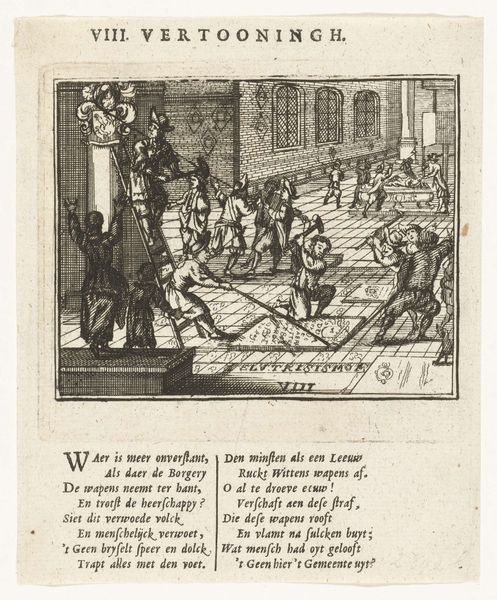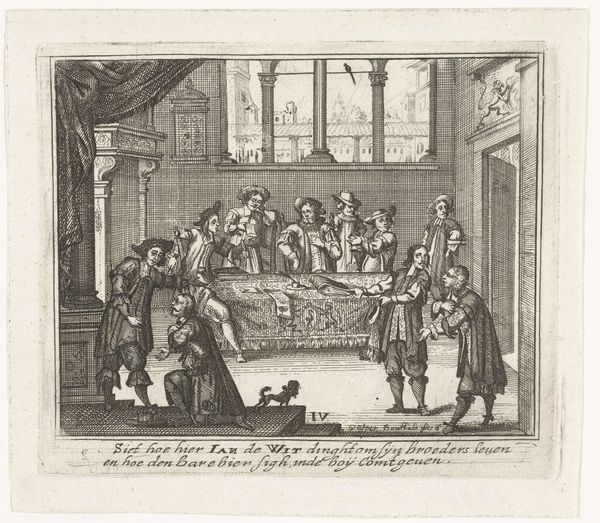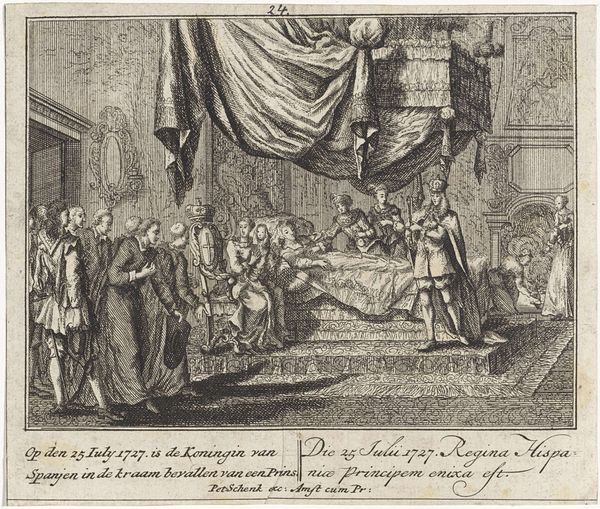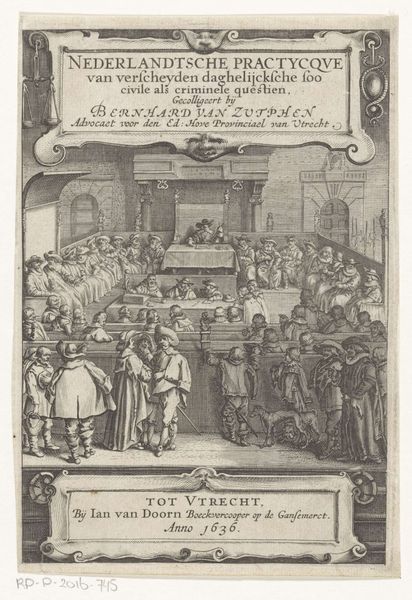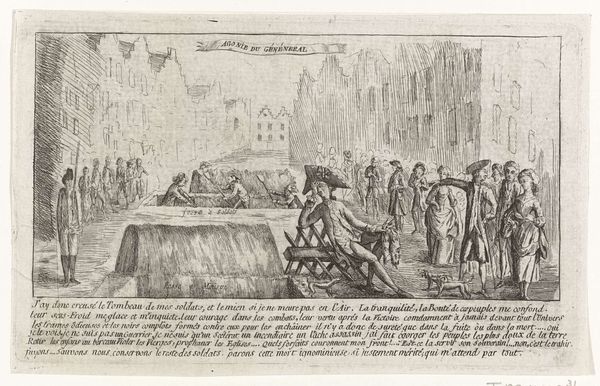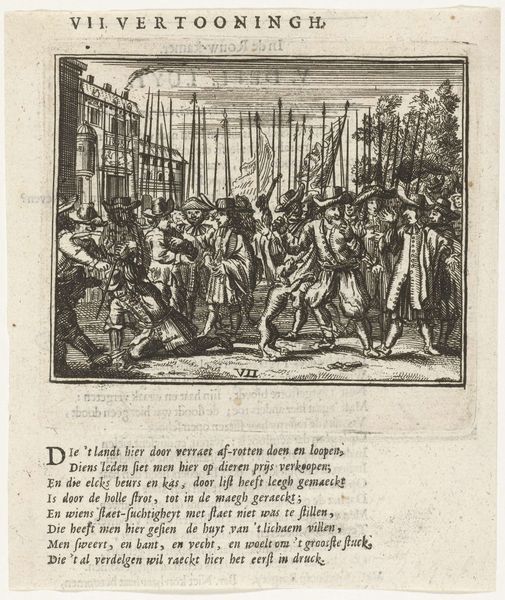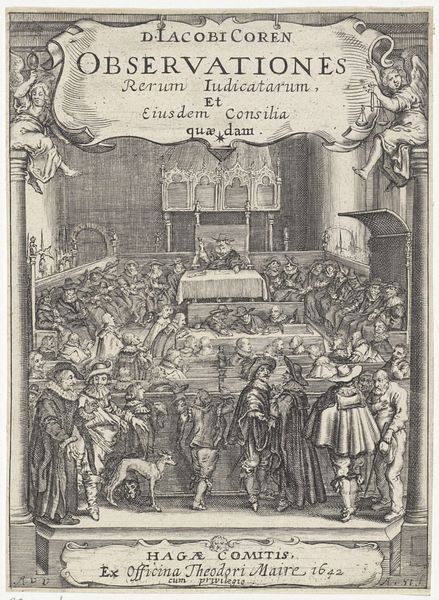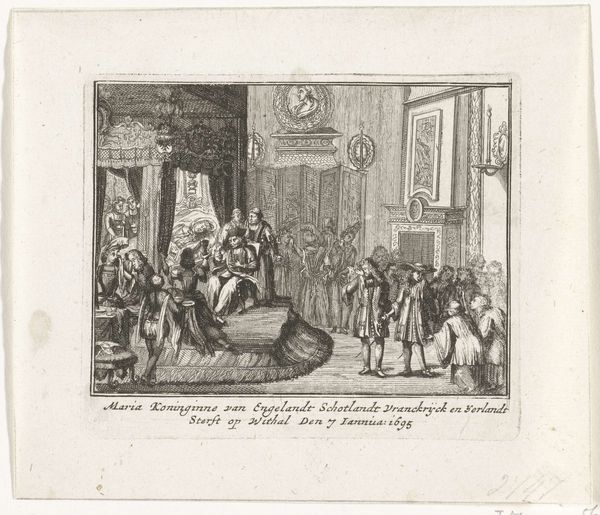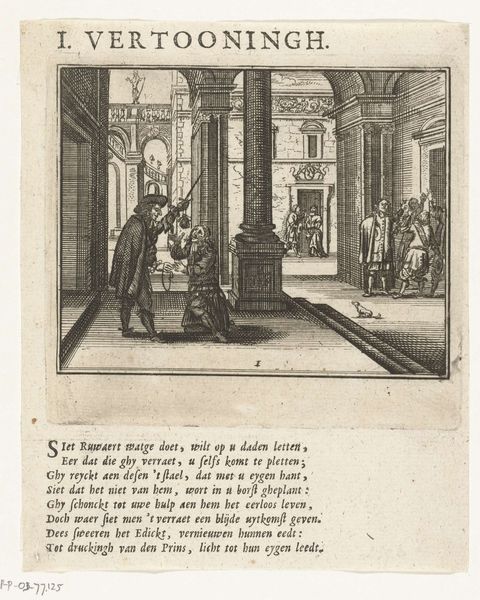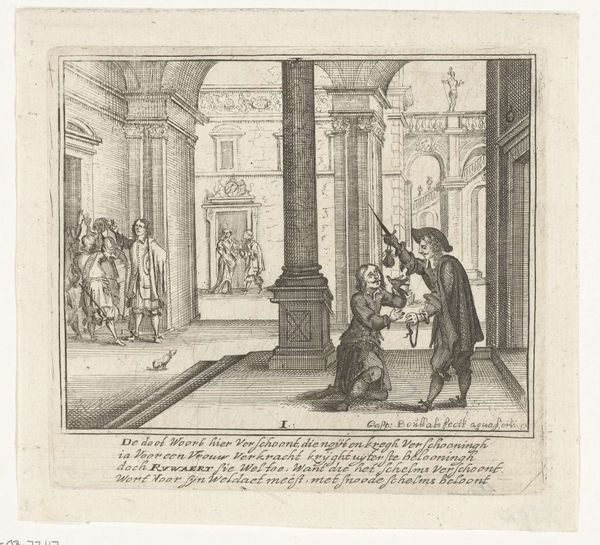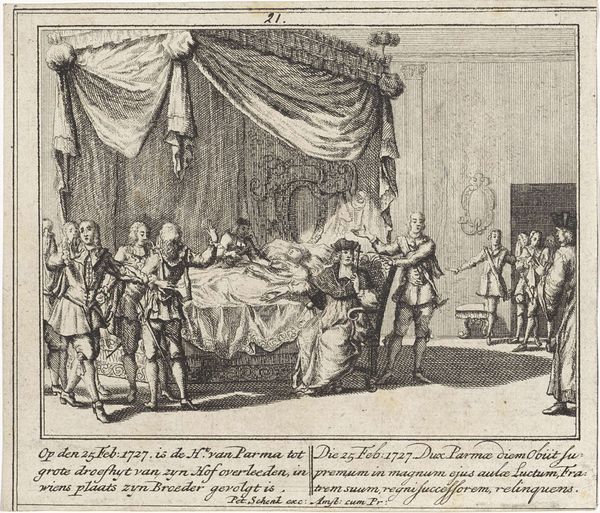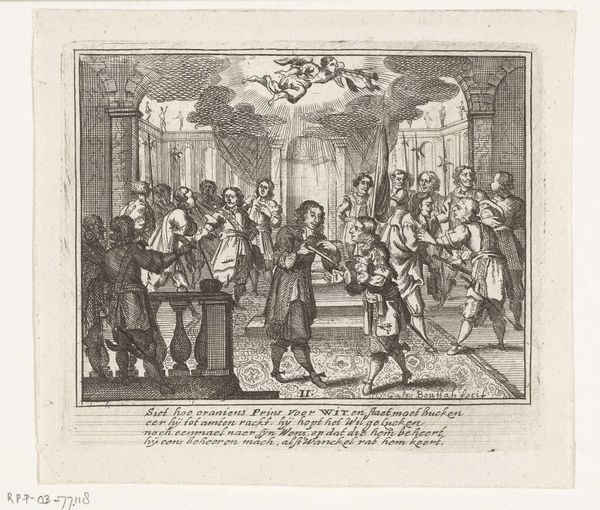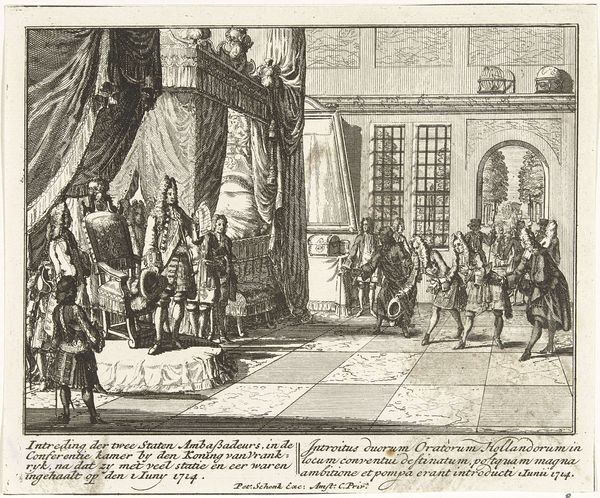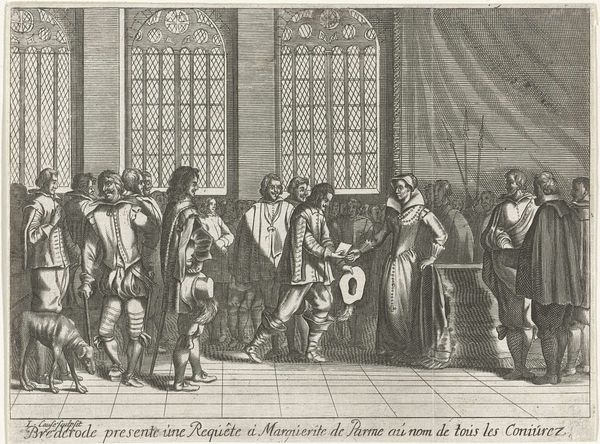
print, engraving
#
narrative-art
#
baroque
#
dutch-golden-age
# print
#
figuration
#
line
#
cityscape
#
history-painting
#
engraving
Dimensions: height 156 mm, width 125 mm
Copyright: Rijks Museum: Open Domain
This engraving, made by an anonymous artist in 1672, depicts Johan de Witt pleading for his brother's life. The scene is dominated by the figures of men in dark clothing, surrounding what appears to be a judicial table. Notice the symbolic gesture of supplication. This posture, with hands clasped and a kneeling figure, echoes across centuries, from ancient Roman oratory to Renaissance depictions of biblical scenes. Here, it embodies the desperation and urgency of de Witt's plea. But, consider how this gesture, rooted in humility and vulnerability, becomes a potent tool of rhetoric. In other contexts, it might represent genuine remorse, but here, it serves a strategic purpose within a charged political landscape. The artist suggests how deeply ingrained cultural symbols can be manipulated, their original meaning twisted to serve contemporary agendas. This image resonates with the eternal human drama of power, loyalty, and the precarious nature of justice, engaging us on a subconscious level with its raw emotional intensity.
Comments
No comments
Be the first to comment and join the conversation on the ultimate creative platform.
